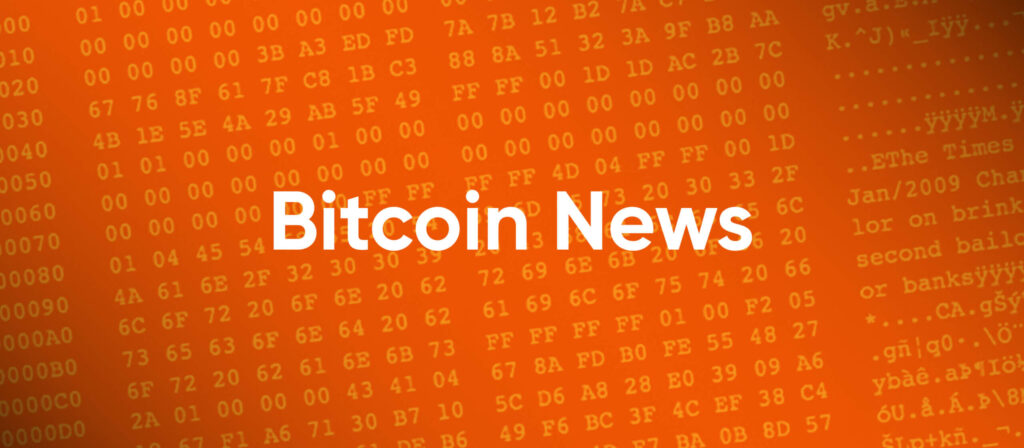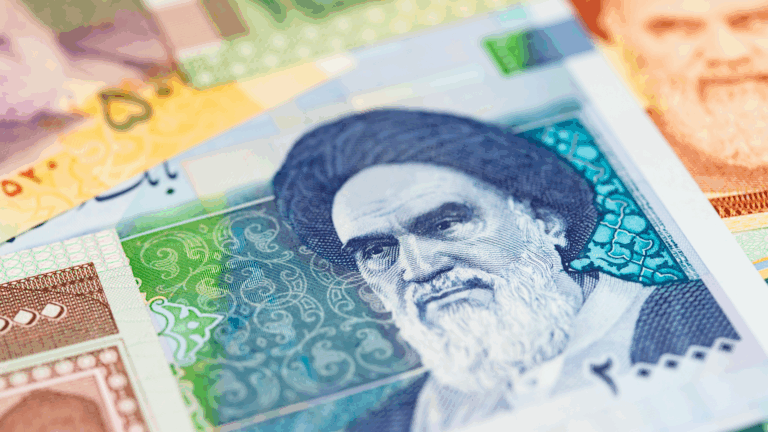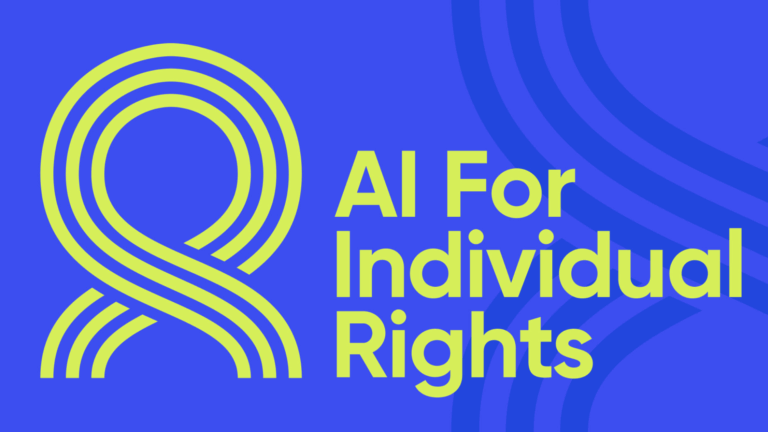The Financial Freedom Report is a newsletter focusing on the role currency and banking play in the civil liberties and human rights struggles of those living under authoritarian regimes. We also spotlight new tools and applications that can help individuals protect their financial freedom.
Good morning readers,
In Hong Kong, lawmakers have passed a new national security law aimed at suppressing dissent among citizens. Meanwhile, the ruling Indian government has frozen the bank accounts of the Indian National Congress, the largest political opposition group in the country, further raising concerns over the erosion of freedom and democracy. In Iran, officials have passed a law that will auto-deduct fines from the bank accounts of women who don’t adhere to mandatory hijab regulations, underscoring the connection between finance and human rights.
In the latest developments around open-source Bitcoin software, Machankura, an offline custodial Lightning wallet for feature phones, revealed its latest iteration aimed at bringing self-custody to its users. Samourai took the first steps in decentralizing its Whirlpool protocol, and Phoenix launched a new specialized Lightning node to simplify Lightning payments for businesses and developers, making faster and more private payments a little bit easier.
Lastly, we feature the Cypherpunk Manifesto, a foundational essay from the early 1990s on achieving privacy in the digital age and the pursuit of individual liberty. The document animated many of the developers who build the tools we use today, and it’s always worth reflecting on.
Let’s dive right in!

Hong Kong | New National Security Law Aims to Suppress Dissent
Hong Kong’s Legislative Council passed a new national security law increasing state power to suppress dissent, a move that raises even more fear over the erosion of civil liberties. This legislation expands on a draconian national securities law previously introduced by Beijing. The earlier law came in response to Hong Kong’s pro-democracy protests, made a wider range of dissenting acts illegal, and led to the arrests of hundreds of protesters and activists. The new law, Article 23, introduces severe penalties, including life imprisonment for acts of treason and insurrection and decades of imprisonment for espionage, disclosure of state secrets, or collusion with external forces. Activists and journalists expressed concerns about the potential implications of Article 23 on their daily lives and work since it could create gray areas that are exploitable by authorities to target dissent and impose harsh penalties. Without question, government agents will use the banking system as a tool to impose Article 23.
India | The Indian National Congress has Bank Accounts Frozen
The Indian government, led by Prime Minister Narendra Modi, froze the bank accounts of its largest political opposition, the Indian National Congress (INC), citing alleged tax violations mere weeks before the upcoming election. According to statements from the INC on X, “all our bank accounts have been frozen. We cannot do our campaign work. We cannot support our workers and candidates. Our leaders cannot travel from one part of the country to the other.” Just days after this development, India’s financial crime agency also arrested opposition leader Arvind Kejriwal in what is seen as a broader action to eliminate competition in the upcoming elections. These events highlight the growing need for a neutral, apolitical currency as a tool for democratic activism and political campaigning.
Iran | New Law Allows Auto-Fines of Women Non-Compliant With Hijab
The Iranian parliament recently passed a law imposing fines on women who violate mandatory hijab regulations, allowing money to be directly deducted from their bank accounts without their consent. The enforcement of this law will use AI facial recognition technology, surveillance cameras, and personal data to identify offenders, with repeat violators facing fines of $400. This measure comes as part of Iran’s broader hijab bill and has seen escalating social tensions surrounding its enforcement after the murder of Mahsa Amini, who was detained by Iran’s “morality police” for breaking the mandatory hijab in 2022. At the same time, Iranian citizens have been experiencing hyperinflation and an isolated currency for many years. Here, Bitcoin has emerged as a useful tool, offering women and men a currency that can’t be arbitrarily seized or censored if used properly.
Argentina | Locals Dumping Dollars for Bitcoin
Amid 274% inflation, Argentinians are opting for Bitcoin over US dollars to protect their savings, according to Bloomberg. This trend is evidenced by a surge in Bitcoin purchases, reaching a 20-month high based on data from the country’s top cryptocurrency exchange. Grappling with an acute economic crisis, Argentina elected Javier Milei in December, who committed to financial austerity that has produced mixed results for the country. Since taking office, Argentina has secured its first budget surplus in 12 years, the peso has strengthened 10% against the dollar, and inflation has cooled. However, poverty levels remain at a 20-year high of 57%, and food insecurity has intensified following Milei’s decision to temporarily suspend funding to 38,000 meal centers, prompting public outcry. While the results of Milei’s policies remain uncertain, what is clear is that Argentinians are increasingly adopting Bitcoin.
Nigeria | Gluwa Behind Many Countries Push For CBDCs
As central bank digital currency (CBDC) adoption grows on the African continent, financial services firm Gluwa has become a central player in assisting regimes with their CBDC initiatives. Building on their partnership with the Central Bank of Nigeria for the eNaira CBDC, Gluwa is now engaged in similar projects in Liberia and is exploring support for Ghana’s eCedi CBDC. In light of recent events, such as the crackdown in Ghana on LGBTQ rights, election violence in Liberia, and Nigeria’s clampdown on alternative currencies, the risks of CBDCs have never been more clear. Their programmable nature can give authorities even more control over citizen microfinancial activity, helping to explain the extreme interest from dictators and authoritarians.
Cuba | Protests Over Blackouts and Food Shortages
The city of Santiago in Cuba is facing severe challenges, including 18-hour daily blackouts and food shortages that have sparked protests where demonstrators are demanding “power and food.” These demonstrations coincide with the government’s decision to implement a fivefold increase in the cost of fuel, all while wages remain stagnant. The spike in fuel prices has paralyzed the economy and exacerbated the difficulties Cubans are facing, including high inflation, widespread poverty, and a severe national food crisis that has led to reduced food rations for children and pregnant women. Rather than acknowledging the gravity of the situation and taking remedial action, Cuba’s foreign minister took to X to blame the US, declaring that “the US direct and cruel responsibility in the harsh economic situation affecting the wellbeing of the Cuban people is well known. The US government, especially its embassy in Cuba, must refrain from interfering in the country’s internal affairs and inciting social disorder.”

Machankura 2.0 | The Java Card Project
Machankura, a custodial Lightning wallet in Africa with offline functionality for feature phones, revealed the latest iteration of its project that will enable its users to take self-custody of their Bitcoin. Leveraging the Unstructured Supplementary Service Data (USSD) protocol for sending text messages, Machankura enables Africans to access the Bitcoin network simply by dialing a designated number on a feature phone (or a smartphone without data), facilitating Bitcoin transactions without the need for an internet connection. The latest iteration, the Java Card project, integrates a chip that runs on a phone’s SIM card, enabling users to self-custody their Bitcoin directly on the device. Machankura’s initiative is especially impactful in regions where internet penetration is low and smartphones are not widespread, helping democratize Bitcoin access and unlock the full potential of censorship-resistant and unconfiscatable money across Africa and beyond.
Phoenix | Launches New Specialized Lightning Node
ACINQ, the team behind Phoenix Wallet and eclair, recently introduced “phoenixd,” a specialized Lightning node tailored specifically for sending and receiving Lightning payments. Phoenixd uses the same software as the Phoenix Wallet but operates on a server rather than a mobile device, provides an http API instead of a GUI, and has automated liquidity management. The purpose of phoenixd is to simplify Lightning for developers, businesses, and organizations by removing added complexities like configuration and channel management while maintaining self-custody. This makes phoenixd particularly valuable for crowdfunding, merchants, and activists, who can use it to more easily accept Lightning payments and donations.
Samourai | First Stage of Whirlpool Decentralization Released
Samourai, a privacy-focused Bitcoin wallet, released the first stage of its plan to decentralize the Whirlpool protocol. Whirlpool is an implementation of CoinJoin, a privacy technique that mixes multiple users’ transactions together to enhance transactional privacy when using Bitcoin — a vital service for activists and citizens residing in surveillance-prone jurisdictions. With this update, Whirlpool improves its decentralization by running over Soroban, an open-source Tor-based communications tool developed by Samourai. “As of today there is no longer a single hard coded Coordinator server that your mixing clients are looking for, instead Coordinator server discovery is automatic through the encrypted Soroban network,” Samourai said.
Stratum V2 | Decentralizing Bitcoin Mining
A milestone has been reached with the release of Stratum Reference Implementation (SRI) 1.0.0 for Stratum V2, a significant effort to help decentralize Bitcoin mining. Stratum V2 aims to enhance decentralization by allowing miners to choose transactions, streamlining data transfers, and reducing infrastructure needs, thereby making solo mining more viable and potentially reducing mining pool dominance. The update brings changes to both Bitcoin miners and pool operators. Miners can now connect to SV2 pools directly with SV2 firmware devices or through the Translation Proxy for connectivity without upgrading their SV1 firmware. They can also run their own Bitcoin node, construct templates, and declare them to the SV2 pool, in addition to a pool fallback feature in the case of pool censorship. Moreover, mining pool operators benefit from simplified SV2 deployment and integration into existing pools. HRF is proud to support these efforts — for example, by funding developers like Lorban — to help make Bitcoin mining more resilient and decentralized.
BitVM 2 | Permissionless Verification on Bitcoin
From the team behind BitVM, a system designed to facilitate Turing-complete Bitcoin contracts, comes BitVM 2, focused on enabling permissionless verification on the Bitcoin network. Building on the principles of its predecessor, BitVM 2 aims to decentralize the verification process, allowing any participant to validate computational assertions without predefined verifiers. By doing so, BitVM could enhance trust assumptions, simplify design complexities, and lower the on-chain footprint associated with verifying computations. BitVM 2 — if it works — could in theory also serve as a foundational piece for bridging Bitcoin to second-layer solutions, such as sidechains or rollups. If successfully implemented, the advancements of BitVM 2 create new possibilities for applications on Bitcoin, enhancing the capabilities of the Bitcoin ecosystem as a whole.
Theya | Introduces Modular Multisig
Theya, a Bitcoin multisignature self-custody solution, has launched globally and introduced a modular multisig wallet in its latest update. Theya offer a way to set up a 2-of-3 multisignature Bitcoin wallet directly from a mobile phone. Additionally, users can integrate a hardware wallet into the setup and distribute custody of the keys among themselves, trusted contacts, or even Theya itself. The update introduces various types of multisignature vaults, including cold vaults for offline key storage, collaborative vaults for shared custody, mobile vaults where a phone acts as a key, or any combination of these setups. With this update, Theya joins multiple other companies offering multisig self-custody, giving NGOs, activists, and persecuted groups a diverse range of choices to help secure their Bitcoin without relying on a single private key.
Recommended Content
The Cypherpunk Manifesto
The Cypherpunk Manifesto, written by Eric Hughes in 1993, serves as a seminal work in the world of digital privacy and the pursuit of individual liberty. Cypherpunks, per the essay, believe in using technology and cryptography to empower individuals against encroachments on their privacy and civil liberties. The manifesto explores the principles of cryptography as a means to protect privacy, freedom of expression, and resistance to surveillance. It laid the groundwork for the modern-day privacy movement and inspired generations of activists to advocate for rights in the digital age (both in the areas of information and financial privacy) and the use of cryptography to safeguard individual freedoms. The manifesto remains more relevant than ever and is foundational for anyone wanting to understand the ideals that shape the current discussions around privacy and security in cyberspace. You can read the full manifesto here.
Oslo Freedom Forum | Reserve Your Spot
Human rights advocates from around the globe will take the Oslo Konserthus stage on June 3-5, 2024, to share their efforts to defy repression and speak out against injustice. This year’s theme, Reclaim Democracy, emphasizes the pivotal role every individual plays within the global movement for democracy. The Financial Freedom team is looking forward to creating a program track exploring the role open-source money plays in preserving our human rights and civil liberties. Use the code 2024OFF to get an early bird discount on your ticket.
If this email was forwarded to you and you enjoyed reading it, please consider subscribing to the Financial Freedom Report here.
Support the newsletter by donating bitcoin to HRF’s Financial Freedom program via BTCPay.
Want to contribute to the newsletter? Submit tips, stories, news, and ideas by emailing [email protected].
Purchase your ticket to the 2024 Oslo Freedom Forum, taking place June 3-5 in Oslo, Norway. Use the code 2024OFF to get an early bird discount.
The Bitcoin Development Fund (BDF) is accepting grant proposals on an ongoing basis. The Bitcoin Development Fund is looking to support Bitcoin developers, community builders, and educators. Submit proposals here.








